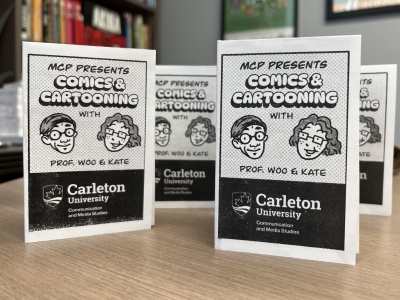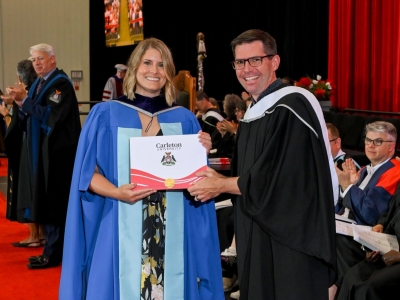In a watershed moment, Carleton University’s journalism school has launched the job search for a new full-time position for a professor of Indigenous Journalism and Story(telling). And in an exception to normal hiring practises, this position is open only to Indigenous applicants.
The job posting for this unique new tenure-track position has just gone up and the hiring committee will begin reviewing applications on Oct. 17. You can access the full posting here.
As the job posting makes clear, Carleton’s journalism school decided to create this position because of the preeminent role of media in reconciliation. The new position is in keeping with Carleton’s recent Kinàmàgawin report, which notes that “a pragmatic, yet powerful, way to create space for Indigenous ways of teaching and learning is to hire more Indigenous faculty members.”
“Carleton must become a leader in fostering a greater understanding of Indigenous journalism and storytelling if meaningful steps toward reconciliation are to be realized,” said Prof. Allan Thompson, the head of Carleton’s journalism program and chair of the hiring committee. “Establishment of a full-time, dedicated faculty position earmarked for an Indigenous media scholar is the only way to begin this work and revitalize our program. We cannot continue to rely on the efforts of contract instructors, adjuncts and visiting scholars. That approach simply isn’t credible and doesn’t give us the scope to create the course options, research program and outreach activities that are critical to Carleton’s journalism program taking a leadership role in reconciliation.”

Richcraft Hall, home to Carleton’s journalism program
The Truth and Reconciliation Commission highlighted the role of the news media in shaping public opinion and also decried journalism’s long history of perpetuating negative stereotypes and under-reporting issues of importance to Indigenous communities.
“Carleton is now seeking to foster a new generation of non-Indigenous journalists fully-equipped to cover Indigenous issues but more importantly, must take bold steps to work with Indigenous communities to cultivate the skills necessary for Indigenous journalists to craft their journalistic truth and change the media landscape in this country,” Thompson said.
Central to Carleton’s Strategic Integrated Plan is a commitment to a “national conversation about reconciliation” and a pledge to “engage Indigenous knowledge to build new ways of teaching and learning.” With the creation of this new teaching position, Carleton will be in a position to address in a more meaningful way the historical and ongoing role of news media in reconciliation and finally seek to truly fulfill the Truth and Reconciliation Commission’s Call to Action.
Journalism, through its power to determine and share ‘truth’ has been implicated in decades of ambivalence to the plight of residential school survivors and we have a responsibility, as Carleton’s Provost Jerry Tomberlin notes in his introduction to Kinàmàgawin, to be “innovative in righting historically problematic relationships,” such as that between the mainstream news media and Indigenous communities. As Tomberlin suggests, we must “break from a distinctly Canadian approach to education that has privileged colonial pedagogies and Western intellectual frameworks.” In the same document, Carleton President Benoit-Antoine Bacon makes clear that we will “need to be courageous and make decisions that protect and promote Indigenous knowledge and that support and maintain respectful relationships between the university and Indigenous communities.”
Those who have questions about this new position should get in touch directly with Prof. Allan Thompson.
Friday, September 9, 2022 in General, Journalism News, News
Share: Twitter, Facebook



